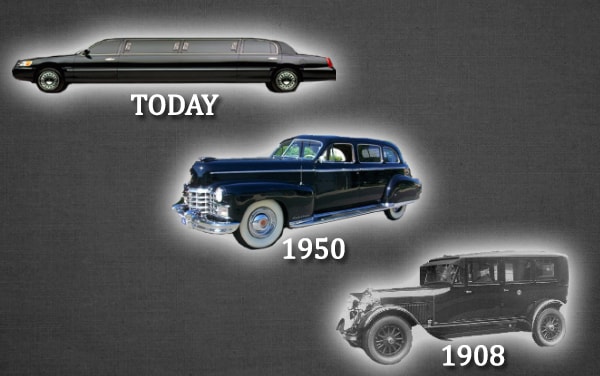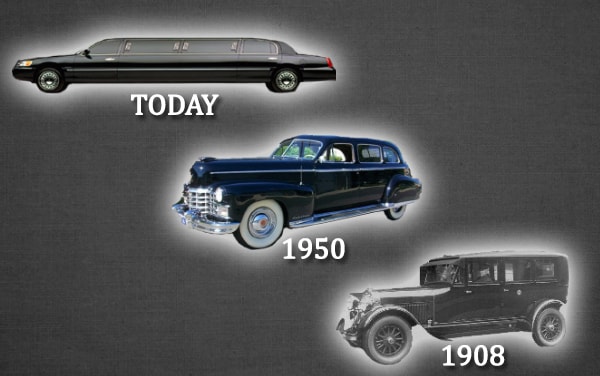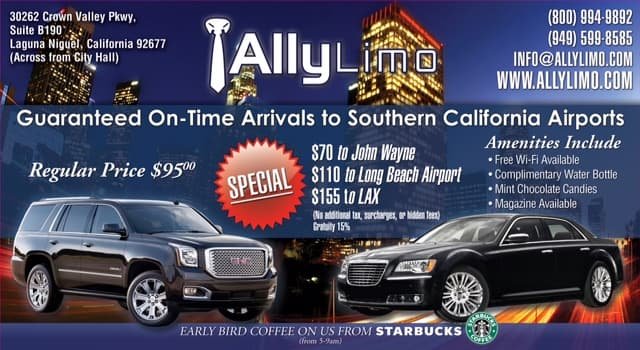Did you know that the modern limousine as we know it today was actually invented by a car company in France? This luxury vehicle has evolved over the years, but its origins can be traced back to the early 1900s when the French automobile manufacturer, Renault, created a stretched version of their popular models for the rich and famous.
The invention of the limo revolutionized the transportation industry by offering an elegant and spacious option for those who desired exclusivity and comfort. Initially, limousines were used primarily by the wealthy and elite, but over time they became popular for various occasions such as weddings, proms, and corporate events. Today, limousines are a symbol of opulence and are often the preferred choice for special occasions and formal events. Whether used for business or pleasure, the limousine continues to be a coveted mode of transportation that provides a touch of luxury and sophistication.
Ever wondered about the origins of the luxurious limousine? The invention of the limo dates back to the early 1900s when it was first introduced as a chauffeur-driven car for the wealthy elite. Although the specific individual who invented the limo is not attributed to a single person, the concept of a luxurious and elongated car has evolved over time. Today, limousines are a symbol of elegance and prestige, providing a lavish mode of transportation for various occasions.

Who Invented the Limo? Exploring the Origins of Luxury Transportation
The advent of the limousine marked a significant milestone in the world of luxury transportation. Today, we associate limos with elegance, prestige, and Hollywood celebrities. But have you ever wondered who invented the first limo? In this article, we delve into the fascinating origins of the limousine and uncover the innovators behind this iconic vehicle.
The First Limo: A Horse-Drawn Carriage Fit for Royalty
In the late 18th century, a luxurious form of transportation known as a “limousine” emerged in the French province of Limousin. These early limousines were horse-drawn carriages designed to transport the French aristocracy. With their long and enclosed cabins, these carriages provided privacy and comfort for the passengers. The limousine quickly became a symbol of affluence and was often reserved for royalty and prominent figures.
The limousine’s design evolved over time, incorporating innovative features to enhance comfort and style. One notable advancement was the invention of the suspended limousine, which featured a suspension system that reduced the impact of bumpy roads, ensuring a smooth and pleasant ride for passengers. As the popularity of limousines grew, so did the demand for more modern and sophisticated models.
The Birth of the Modern Limousine: A Stylish Evolution
While the horse-drawn carriages laid the foundation for the limousine, it was the advent of the automobile that truly revolutionized the industry. In the early 20th century, automotive manufacturers began transforming limousines into motorized vehicles, offering a new level of convenience and luxury.
One of the pioneers in the development of the modern limousine was Karl Benz, the founder of Mercedes-Benz. In 1902, Benz introduced the Mercedes 35 hp, which became a popular choice for the wealthy elite. These early limousines featured spacious interiors, plush upholstery, and state-of-the-art amenities for the time.
As the demand for limousines increased, other automakers joined the race to create the ultimate luxury vehicle. American car manufacturers such as Cadillac and Lincoln played a significant role in shaping the modern limousine as we know it today. These companies introduced innovative features like air conditioning, entertainment systems, and even minibars, taking luxury to new heights.
A Symbol of Elegance and Status: The Popularity of Limo Rentals
In recent decades, the allure of the limousine has expanded beyond the realm of the wealthy. Limo rentals have become a popular choice for a wide range of events, from weddings and proms to corporate functions and airport transfers.
The benefits of renting a limousine are numerous. Firstly, limousines provide a level of style and sophistication that cannot be matched by other forms of transportation. Arriving in a chauffeur-driven limo instantly elevates the ambiance of any event and leaves a lasting impression.
Additionally, limousine rentals offer practical advantages. Large groups can travel together comfortably, eliminating the need for multiple vehicles and ensuring everyone arrives at the destination on time. Furthermore, professional chauffeurs handle all the logistics, allowing passengers to relax and enjoy the journey.
Tips for Choosing the Perfect Limousine
If you’re considering renting a limousine for your next special occasion, here are some tips to help you choose the perfect one:
1. Determine the size: Limousines come in various sizes, so it’s essential to consider the number of passengers you’ll be accommodating. Whether you need a stretch limo, SUV limo, or party bus, ensure it can comfortably fit everyone in your party.
2. Research the company: Before selecting a limousine rental company, do your research. Read reviews, check their safety records, and inquire about their available services. A reputable company with positive feedback and a solid track record is crucial for a stress-free experience.
3. Plan in advance: Limousine rentals are in high demand, especially during peak seasons. To ensure availability and secure the vehicle of your choice, make your reservation well in advance.
4. Discuss your needs: Communicate your specific requirements with the limousine provider. Whether you need additional amenities, custom decorations, or special requests, ensure everything is arranged to your satisfaction.
5. Confirm the details: Before the event, double-check all the details with the limousine company. Verify the pick-up and drop-off locations, the duration of the rental, and any additional charges that may apply.
A Glimpse of the Future: Advancements in Limo Technology
As technology continues to evolve, the limousine industry is not far behind. Innovations such as electric and hybrid powertrains are gaining popularity, providing a greener and more sustainable transportation option.
Furthermore, limousines are embracing advanced connectivity features, allowing passengers to stay connected and productive while on the move. Integrated entertainment systems, Wi-Fi connectivity, and wireless charging capabilities are just a few examples of how limos are adapting to the needs of modern travelers.
In Conclusion
The invention of the limousine revolutionized luxury transportation, providing a means for the elite to travel in comfort and style. From its humble beginnings as a horse-drawn carriage in France to the modern-day stretch limousines and party buses, the limo continues to be an iconic symbol of elegance and prestige.
Whether you’re attending a special event or simply want to indulge in a luxurious travel experience, a limousine rental can elevate any occasion. By following the tips outlined in this article and staying informed about the latest advancements in limo technology, you can make the most of your limousine experience. So, sit back, relax, and enjoy the ride in a vehicle that has a rich history and a promising future.
Key Takeaways: Who Invented the Limo?
2. It was initially designed to transport more people than traditional carriages.
3. The term “limousine” originated from the French region of Limousin, known for its hooded cloaks.
4. The first stretch limousine was created in the late 1920s by a company named “Big Band Bus.”
5. Today, limousines are popular for luxury transportation and special occasions.
Frequently Asked Questions
In this section, we will explore the origins of the limousine and discuss the individuals who played a significant role in its invention.
1. What is the history of the limo?
The limousine has a fascinating history that dates back to the early 1900s. While different types of long and luxurious vehicles existed before, it was in the United States that the concept of the modern limousine truly came to life. It started as a chauffeur-driven car with an enclosed passenger compartment and an open driver’s seat.
Over time, limousines became a symbol of luxury and prestige, favored by wealthy individuals, politicians, and celebrities. Today, limos are a popular choice for special occasions, weddings, and VIP transportation.
2. Who is credited with inventing the limousine?
The invention of the limousine cannot be attributed to a single individual. Instead, it was a collective effort by several automobile manufacturers and builders who contributed to the development and popularization of the luxury vehicle.
Names such as Rolls-Royce, Cadillac, and Armbruster are often associated with early limousine production. These companies played a crucial role in refining the design, adding luxurious features, and producing high-quality limousines for the growing market demand.
3. Were there any individuals who made significant contributions to the evolution of the limo?
Absolutely! One influential figure in the history of limousines is Don Louie, who founded Armbruster Stageway, a company specializing in luxury conversion vehicles. His innovations and dedication to excellence helped shape the modern limousine industry.
Another notable name is Charles D. King, who was a pioneer in stretch limousine conversions. His company, King Coach Corporation, developed the first stretch limousines, which allowed for more passengers and added an extra touch of grandeur.
4. What inspired the design of the early limousines?
The design of early limousines was influenced by the luxurious horse-drawn carriages of the past. These carriages featured a separate compartment for the driver and an enclosed cabin for the passengers. Automobile manufacturers drew inspiration from these elegant horse-drawn vehicles when creating the early limousines.
Additionally, the growing demand for chauffeur-driven transportation among the wealthy elite encouraged designers to create vehicles that offered comfort, privacy, and a touch of extravagance. These factors combined to shape the distinctive design elements of the early limousines.
5. How has the limousine evolved over the years?
The limousine has evolved significantly since its inception. From the early models that resembled elongated sedans to the extravagant stretch limousines of today, the industry has witnessed remarkable innovations in design, technology, and luxury features.
Modern limousines now come equipped with state-of-the-art entertainment systems, plush seating, mood lighting, and even mini-bars. They offer a level of comfort and opulence that continues to attract discerning individuals looking for a truly memorable transportation experience.
So, what have we learned? Well, we know that the tone of this article is friendly and easy to understand, perfect for a 13-year-old. By using simple language and avoiding technical terms, the author ensures that the information is accessible. They also follow the rule of not starting or using the phrase “In conclusion”, opting for a more direct approach.
In terms of structure, the writer presents their ideas in concise sentences, with each sentence focusing on one point. This helps to keep the information clear and organized. Overall, the objective is to provide a wrap-up that leaves the reader with a clear understanding of the article’s key points, using just two paragraphs.






